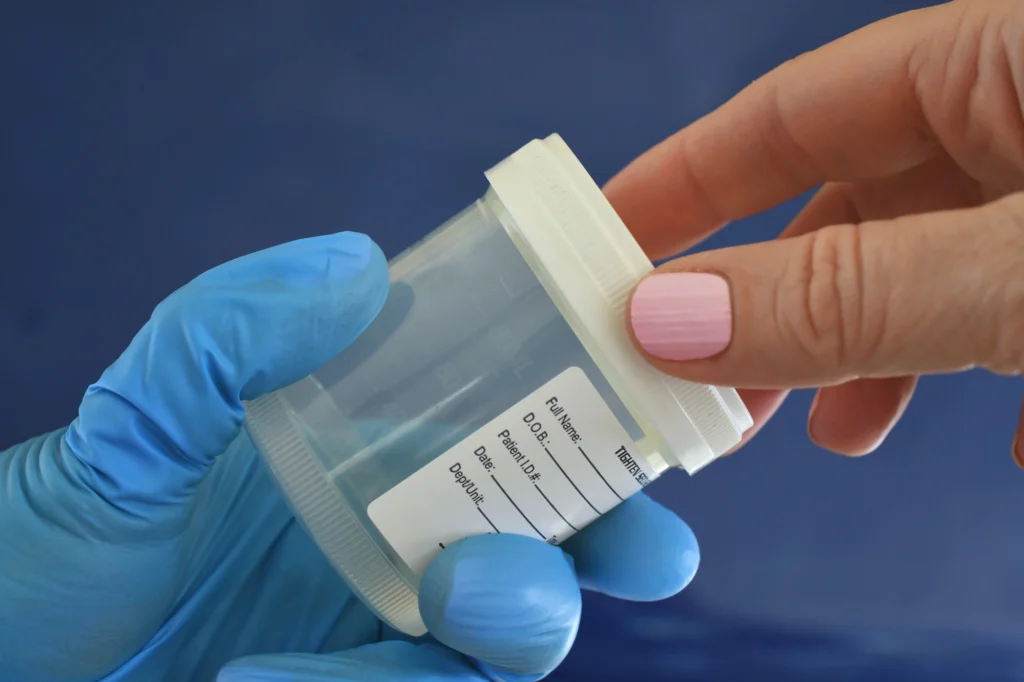C.L.I.A.????? What the heck is it? In substance abuse and drug rehab settings, quick and accurate testing can make a significant difference in patient care and recovery outcomes. One critical tool that has revolutionized the way testing is done in these environments is C.L.I.A.-waived testing. But what does “C.L.I.A.-waived” mean, and why is it so important for drug rehab centers like Asheville Recovery Center? In this article, we’ll break down what C.L.I.A.-waived testing is, how it works, and why it is essential in substance abuse treatment, with a focus on drug testing, including the use of dip cards, panel drug test cups, urine drug test cups, and drug test kits.

What is CLIA?
C.L.I.A. stands for Clinical Laboratory Improvement Amendments. These are regulations in the United States that ensure that all laboratory testing on human specimens is accurate, reliable, and timely. The amendments were enacted by Congress in 1988 to establish quality standards for all laboratory testing to ensure the accuracy, reliability, and timeliness of patient test results, regardless of where the test was performed. Whether it’s a large hospital lab or a small clinic, every facility that performs medical testing must be certified under CLIA.
For drug rehab centers like Asheville Recovery Center, C.L.I.A. regulations are crucial in maintaining high standards for testing. This ensures that when a test is conducted, whether for drug screening or monitoring health conditions, the results are dependable and FDA approved.
What is CLIA-Waived Testing?
C.L.I.A.-waived tests are a specific category of tests that the Food and Drug Administration (FDA) has approved as simple, quick, and with a low risk of error. These tests are “waived” from some of the more rigorous requirements that apply to other types of lab tests because they are easy to administer and interpret.
In substance abuse and drug rehab settings, CLIA-waived testing is a game-changer. It allows healthcare providers to perform essential tests on-site with immediate results, which is vital for making timely decisions about a client’s treatment plan.
Why is CLIA-Waived Testing Important in Drug Rehab?
In a drug rehab environment, accurate and immediate information about a client’s substance use is essential for creating and adjusting treatment plans. C.L.I.A.- waived tests provide several critical benefits:
- Rapid Results: Many C.L.I.A.-waived drug tests provide results within minutes. This allows healthcare providers to make immediate decisions, whether it’s confirming a client’s sobriety or identifying a relapse. This is especially important when testing for substances like Fentanyl and its metabolites.
- Accessibility: Because C.L.I.A.-waived tests are straightforward and require minimal training, they can be used in various settings within the rehab center, from intake assessments to regular monitoring. Point of care testing is made more accessible with these tests.
- Cost-Effective: These tests are generally less expensive than more complex lab tests, making them a cost-effective option for both the facility and the client.
- Ease of Use: The simplicity of C.L.I.A.-waived tests minimizes the chance of errors, ensuring that the results are reliable and can be trusted when making critical treatment decisions. Tools like dip cards and panel drug test cups make it easy to conduct comprehensive screenings on-site.
- Improved Patient Outcomes: Quick, reliable results lead to more responsive and tailored care, which can significantly improve recovery outcomes.
CLIA-Waived Tests vs. Non-CLIA-Waived Tests
It is crucial to understand that not all tests are CLIA-waived. Some tests, especially those that require more complex analysis, are not suitable for point of care (POC) and must be sent to certified laboratories for processing. For example, more detailed drug analyses or confirmatory tests that measure specific levels of substances (like quantitative tests for therapeutic drug monitoring) are not C.L.I.A.-waived and should not be used to make immediate clinical or treatment decisions at the POC (In person immediate results) level.
In the USA, healthcare providers must be careful not to base clinical decisions on the results of non-C.L.I.A.-waived tests when conducting POC testing. Non-CLIA-waived tests require more stringent procedures, including temperature control and the use of a temperature strip to ensure sample integrity during transit to a laboratory.

Common CLIA-Waived Tests Used in Substance Abuse Treatment
In substance abuse and drug rehab settings, C.L.I.A-waived tests are essential tools for monitoring a client’s progress. Some of the most common CLIA-waived tests include:
- Panel Urine Drug Tests: Used to detect the presence of multiple drugs in urine, including THC (marijuana), PCP, amphetamines, cocaine (COC), methamphetamines (MET), opiates (OPI), and benzodiazepines (BZO). These are often conducted using panel urine drug test cups or urine drug test cups.
- Dip Card Tests: A type of drug test kit that allows for quick and easy screening of multiple substances at once.
- Cutoff Levels: CLIA-waived drug tests are designed to detect substances at specific cutoff levels, ensuring that the results are both accurate and meaningful.
- Fentanyl and Metabolites Testing: Given the rising concerns over opioid abuse, CLIA-waived tests for Fentanyl and its metabolites are crucial in identifying usage and preventing overdose.
- HIV and Hepatitis Tests: Ensuring clients are aware of their health status and can receive appropriate care if necessary.
These tests provide quick insights into a client’s health and substance use status, allowing healthcare providers to make immediate adjustments to their treatment plans.
Common Short Names Used in Drug Testing
Here are some of the common short names you might encounter in drug testing and drug screening in a substance abuse setting:
- COC: Cocaine
- THC: Tetrahydrocannabinol (Marijuana)
- PCP: Phencyclidine
- AMP: Amphetamines
- MDMA: Methylenedioxymethamphetamine (Ecstasy)
- MET: Methamphetamines
- MTD: Methadone
- BUP: Buprenorphine (Like Suboxone)
- BZO: Benzodiazepines
- OPI: Opiates
- OXY: Oxycodone
- TCA: Tricyclic Antidepressants (e.g., amitriptyline)
- MAMP: Methamphetamines
These abbreviations are frequently used in substance abuse treatment to quickly identify the substances being tested for in a client’s system.
How CLIA-Waived Testing Supports Recovery
At Asheville Recovery Center, the ability to quickly and accurately monitor clients’ progress through C.L.I.A.-waived testing is invaluable. Drug testing is a critical component of treatment, and with C.L.I.A.-waived tests, the center can ensure that clients are staying on track. Regular testing for drugs of abuse like THC, PCP, amphetamines, and opiates helps in detecting relapses early, allowing the treatment team to intervene quickly and provide the necessary support.
For confirmatory testing of results from our test cups and other initial screenings, we rely on Keystone Labs. As the number one lab in Western North Carolina, Keystone Labs ensures that our confirmatory tests are accurate and reliable. Their advanced capabilities allow us to confirm results with the highest level of confidence, ensuring that every treatment decision is based on the most precise information available.
Additionally, C.L.I.A.-waived tests help in managing clients’ overall health. For example, if a client has co-occurring medical conditions like diabetes, C.L.I.A.-waived blood glucose tests can be used to monitor their health alongside their recovery journey. This comprehensive approach ensures that all aspects of a client’s well-being are addressed.
Challenges and Limitations of CLIA-Waived Testing
While C.L.I.A.-waived tests offer many benefits, they also have some limitations, particularly in a drug rehab setting:
- Scope: C.L.I.A.-waived tests are primarily for screening and monitoring. For more detailed or complex diagnostic needs, additional tests may be required.
- Accuracy: Although the risk of error is low, it’s not zero. Proper handling and following the manufacturer’s instructions are essential to ensure accurate results.
- Interpretation: Sometimes, a positive result for substances like THC, PCP, or amphetamines needs to be interpreted in the context of other clinical findings, which may require additional confirmatory testing.
- Non-CLIA-Waived Tests: More complex tests that are not C.L.I.A.-waived require laboratory settings and should not be used for immediate clinical decision-making. These tests might involve advanced analysis techniques, temperature control during transport, or confirmatory testing that exceeds the scope of POC testing.
Despite these limitations, the benefits of using CLIA-waived tests in a drug rehab setting far outweigh the challenges, especially when quick decision-making is crucial for effective treatment.
The Future of CLIA-Waived Testing in Substance Abuse Treatment
As technology continues to advance, we can expect more innovative CLIA-waived tests to become available, offering even more options for drug screening and health monitoring in substance abuse treatment. For instance, newer tests may be able to detect a broader range of substances or provide even faster results, further enhancing the quality of care provided in drug rehab settings.
At Asheville Recovery Center, we are committed to staying at the forefront of these advancements. By continually updating our testing capabilities and partnering with Keystone Labs for confirmatory testing, we can ensure that our clients receive the most effective and timely care possible, supporting their journey to long-term recovery.
Conclusion
CLIA-waived testing plays a vital role in substance abuse and drug rehab settings. These tests provide a quick, easy, and affordable way to monitor clients’ progress, ensuring that they receive the best possible care. At Asheville Recovery Center, we are proud to utilize CLIA-waived testing as part of our comprehensive approach to treatment, helping our clients achieve and maintain sobriety.
For more information about our CLIA-waived testing services and how they support recovery, please contact us. You can also visit the Centers for Medicare & Medicaid Services website for more details about CLIA regulations and waived tests.






